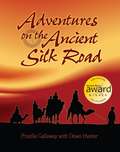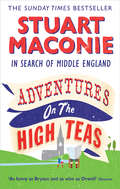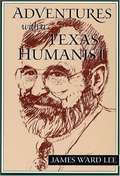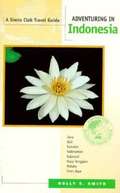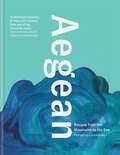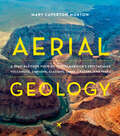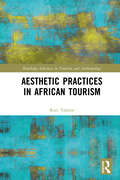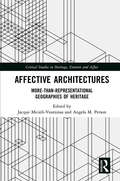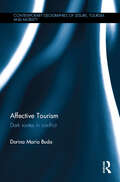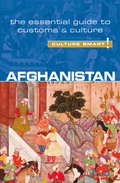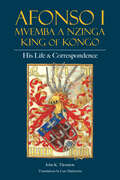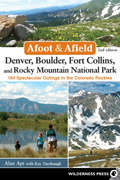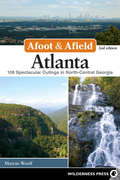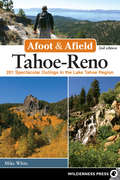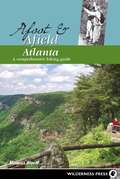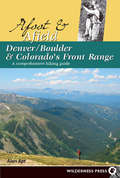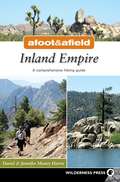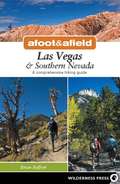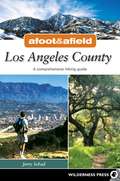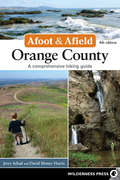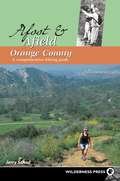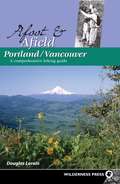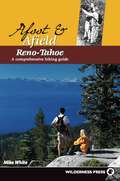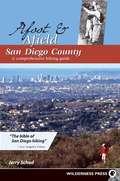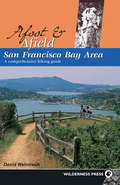- Table View
- List View
Adventures on the Ancient Silk Road
by Priscilla Galloway Dawn HunterA gripping account of three dramatic journeys that changed history. The fabled Silk Road conjures up the sights, smells and sounds of faraway lands. But traveling the Silk Road took years, and those who set out encountered bandits, starvation and treacherous storms. Adventures on the Ancient Silk Road introduces readers to three great historical figures: Chinese Buddhist Xuanzang, whose 16-year journey from China to India and back (629-645 AD) is the only source we have for huge chunks of the history and geography of this time. His successful search for Buddhist scriptures changed the course of two great nations. Genghis Khan, bred from infancy to be a warrior, brought the Mongol clans together. He established the greatest empire the world had seen, which ruled the Silk Road from 1201 to 1227. Italian merchant Marco Polo journeyed through China from 1271 to 1295. He changed the way Europe saw the world, and his book even inspired Columbus to sail west across the Atlantic Ocean in search of China. Sidebars and an afterword that updates the story of the Silk Road are featured.
Adventures on the High Teas: In Search of Middle England
by Stuart MaconieEveryone talks about 'Middle England'. Sometimes they mean something bad, like a lynch mob of Daily Mail readers, and sometimes they mean something good, like a pint of ale in a sleepy Cotswold village in summer twilight. But just where and what is Middle England? Stuart Maconie didn't know either, so he packed his Thermos and sandwiches and set off to find out...Is Middle England about tradition and decency or closed minds and bigotry? Is it maypoles and evensong, or flooded market towns and binge drinkers in the park? And is Slough really as bad as Ricky Gervais and John Betjeman make out? From Shakespeare to JK Rowling, Vaughan Williams to Craig David, William Morris to B&Q, Stuart Maconie leads the expedition, with plenty of stop-offs for tea and scones, to discover the truth.
Adventures with a Texas Humanist
by James Ward LeeIn the first two essays in this volume--"The Age of Dobie" and "The Age of McMurtry"--James Ward Lee places the writers, the politicians, and the cultural leaders in the context of each age. Subsequent chapters discuss writers and trends in Texas literature. Lee discusses long-standing arguments about Texas literature and surveys bodies of work that have had an impact on it.
Adventuring in Indonesia: Exploring the Natural Areas of the Pacific's Ring of Fire
by Holly S. SmithIn the latest addition to the Sierra Club Adventure Travel series, Holly Smith provides a wealth of savvy and sensitive advice on both outdoor and cultural opportunities in this enormously popular adventure destination.
Aegean: Recipes from the Mountains to the Sea
by Marianna Leivaditaki'A delicious evocation of place and memory from one of my favourite cooks.' Allan Jenkins, Editor of Observer Food Monthly'This book is so much more than a cookbook, it's a love song to a very special place and we are lucky to have the brilliant Marianna as our guide.' Itamar Srulovich, co-founder of Honey & Co.'I want to make everything in this beautiful book. An absolute treasure.' Rosie Birkett, author of The Joyful Home CookWith photography from Elena Heatherwick, the Fortnum & Mason Food and Drink Photographer of the Year 2020Marianna Leivaditaki is a natural storyteller. She grew up in Chania, on the Greek island of Crete, and spent her childhood helping out in the family-run taverna. After school, she carried around her blue notebook, writing downall the recipes she would like to cook, helped by the Greek grannies' kitchen wisdom. Marianna's love for the food of her heritage flows off every page, but she also has a contemporary take on it. As head chef of Morito in Hackney, she has championed high-quality ingredients, presenting them in simple, stunning sharing plates, and has been critically acclaimed for doing so.These inspirational recipes derive from the SEA, the LAND and the MOUNTAINS. We all know the health benefits of a Mediterranean diet, rich in olive oil, fresh vegetables and fruit, nuts, fish and whole grains, as well as the importanceof how you eat and appreciate your food. Marianna offers achievable, yet delicious dishes celebrating seasonal, fresh food that you can take time to enjoy with friends and family.
Aerial Geology: A High-Altitude Tour of North America’s Spectacular Volcanoes, Canyons, Glaciers, Lakes, Craters, and Peaks
by Mary Caperton Morton“Get your head into the clouds with Aerial Geology.” —The New York Times Book ReviewAerial Geology is an up-in-the-sky exploration of North America’s 100 most spectacular geological formations. Crisscrossing the continent from the Aleutian Islands in Alaska to the Great Salt Lake in Utah and to the Chicxulub Crater in Mexico, Mary Caperton Morton brings you on a fantastic tour, sharing aerial and satellite photography, explanations on how each site was formed, and details on what makes each landform noteworthy. Maps and diagrams help illustrate the geological processes and clarify scientific concepts. Fact-filled, curious, and way more fun than the geology you remember from grade school, Aerial Geology is a must-have for the insatiably curious, armchair geologists, million-mile travelers, and anyone who has stared out the window of a plane and wondered what was below.
Aesthetic Practices in African Tourism (Routledge Advances in Tourism and Anthropology)
by Ruti TalmorAesthetic Practices in African Tourism explores "Rastahood", a community, youth culture, and new tourist art form created by young men on the margins of the Ghanaian economy as they came of age at the turn of the millennium. This book focuses on art, music, and affective experience created within tourism contexts, which enabled young men without educational or class capital to achieve mobility through work with foreigners, transforming the temporal horizon by expanding the geographic one. It traces the path that led young men down the path to Rastahood and investigates how they created an art form in, and of, a particular place and then used it to propel themselves far beyond its confines. The book ends with a leap forward into the present, out of Ghana, and beyond Rastahood, as men, now in middle age, look back upon the path that Rastahood created. It explores the social effects of neoliberal capitalism, specifically the rise of neoliberal subjectivities, collectivities, and socialities. The book will be of interest to researchers in the fields of anthropology, cultural studies, tourism, art, African and Africana Studies, popular culture; gender studies; migration; youth studies and those interested in African cities.
Affective Architectures: More-Than-Representational Geographies of Heritage (Critical Studies in Heritage, Emotion and Affect)
by Jacque Micieli-Voutsinas Angela M. PersonHow do places manipulate our emotions? How are spaces affectious in their articulation and design? This book provides theoretical frameworks for exploring affective dimensions of architectural sites based on the notion that heritage, as an embodied experience, is embedded in places and spaces. Drawing together an interdisciplinary collection of essays spanning geographically diverse architectural sites — including Ford’s Theater, the site of President Lincoln’s assassination; the Estadio Nacional of Santiago, Chile, where 12,000 detainees were held following the ouster of President Salvador Allende; and Unit 731, the site of a biological and chemical warfare research unit of the Imperial Japanese army in Harbin, China, amongst others — this edited collection assembles critical dialogue amongst scholars and practitioners engaging in affective and other more-than-representational approaches to cultural memory, heritage, and identity-making. Broken into three main sections: Affective Politics; Embedded Geographies; and Affective Methodologies, this book draws together multidisciplinary perspectives from the arts, social sciences and humanities to understand the role of architecture in generating embodied experiences at places of memory. This book offers interdisciplinary perspectives on fundamental questions of memory, identity and space. It will be of interest to students and scholars in the fields of geography, architecture, cultural studies, and museum and heritage studies.
Affective Tourism: Dark routes in conflict (Contemporary Geographies of Leisure, Tourism and Mobility)
by Dorina Maria BudaThis book brings together, explores and expands socio-spatial affect, emotion and psychoanalytic drives in tourism for the first time. Affect is to be found in visceral intensities and resonances that circulate around and shape encounters between and amongst tourists, local tourism representatives and places. When affect manifests, it can ‘take shapes’ in the form of emotions such as fun, joy, fear, anger and the like. When it remains a visceral force of latent bodily responses, affect overlaps with drives as expounded in psychoanalysis. The aim of the title, therefore, is to explore how and in what ways affects, emotions and drives are felt and performed in tourism encounters in places of socio-political turmoil such as Jordan, Palestine/Israel, with a detour to Iraq. Affective Tourism is highly innovative as it offers a new way of theorising tourism encounters bringing together, critically examining and expanding three areas of scholarship: affective and emotional geographies, psychoanalytic geographies and dark tourism. It has relevance for tourism industries in places in the proximity of ongoing conflicts as it provides in-depth analyses of the interconnections between tourism, danger and conflict. Such understandings can lead to more socio-culturally and politically-sustainable approaches to planning, development and management of tourism. This ground breaking book will be of valuable reading for students and researchers from a number of fields such as tourism studies, geography, anthropology, sociology and Middle Eastern studies.
Afghanistan - Culture Smart!
by Moska Najib Nazes AfrozAfghanistan is situated at the crossroads of Asia, a strategically important location that connects the Middle East with Central Asia and the Indian subcontinent. Down the ages it has been subjected to continuous foreign invasion and intervention--from Alexander the Great to Genghis Khan, and as a pawn in the struggle between the British and Russian Empires--making its people wary of outsiders. That history is being repeated in the twenty-first century. Afghanistan has always been seen from the outside as a realm of much intrigue and many myths. The Afghans tried to keep their distance from the outside world--especially from the Europeans who, whether in pursuit of imperial goals or simply as explorer-travelers, attempted to enter and traverse the land. Their very elusiveness attracted Westerners to this landlocked country of high mountains and breathtaking beauty, where age-old customs and traditions were zealously guarded, sometimes at the cost of many lives. The Afghan people are a tapestry of ethnicities woven over time--Pashtuns, Tajiks, Hazaras, Uzbeks, and many smaller ones. Society is organized mainly along ethnic and tribal lines, but ethnic identity becomes irrelevant when a common enemy threatens to take control of the country. There are also many shared values and unwritten codes of conduct that govern interpersonal relations, which are not taken lightly. Visitors are struck by the simplicity, hospitability, dignity, and generosity of the Afghan people, and often confounded by customs that they find hard to understand. Culture Smart! Afghanistan is a unique introduction to the background, habits, traditions, idiosyncrasies, suspicions about foreigners, and patterns of behavior of the Afghan people. It offers visitors invaluable information and insights that will help them to interact with Afghans, to interpret their behavior, and to behave appropriately in their company, whether in personal or business exchanges. Once the ice is broken, the rewards will be great.
Afonso I Mvemba a Nzinga, King of Kongo: His Life and Correspondence
by John K. Thornton"John K. Thornton&’s new book is another must-read. It contains both translations of the extant letters of the most significant king of Kongo&’s history, Afonso I (r. 1506–1542), and a powerful, learned, and highly readable analysis of what these letters tell us about the life and times of one of the most important rulers anywhere in the world during the sixteenth century. This book will be essential reading for scholars, teachers, and students engaged with the history of the Kingdom of Kongo." —Toby Green, King&’s College London
Afoot & Afield Denver, Boulder, Fort Collins, and Rocky Mountain Naitonal Park
by Alan Apt Kay TurnbaughAfoot and Afield: Denver, Boulder, Fort Collins, and Rocky Mountain National Park includes 184 carefully chosen routes that can be used for not only hiking, but, in some cases, mountain biking, and backpacking.
Afoot & Afield: Atlanta 2e
by Marcus WoolfAfoot & Afield: Atlanta details more than 105 of the best hikes within a two-hour drive of Atlanta, including backcountry treks, day hikes, battlefield walks and urban treks. The book includes outings appropriate for everyone, from families and children to experienced backpackers.
Afoot & Afield: Tahoe-Reno 2e
by Mike WhiteThe most comprehensive hiking guide to the Reno and Tahoe area with more than 175 of the best hikes described by veteran guidebook author Mike White. 26 new hikes added in this edition.
Afoot and Afield: Atlanta
by Marcus WoolfCovers the abundance of natural areas within a two-hour drive of the city in 100 hikes, from challenging backcountry treks in the north Georgia mountains to easy dayhikes along the Chattahoochee River. The diverse trails pass through parks where families can observe wildlife, historical sites and old battlefields, and one of the largest wilderness areas in the Southeast. Highlights summarize each trip's best features, and at-a-glance essential information-distance, time, elevation change, and difficulty rating-makes it easy to choose the right outing. Maps with GPS waypoints indicate notable spots on the trail such as junctions, scenic overlooks, wildlife observation platforms, and backcountry campsites.
Afoot and Afield: Denver/Boulder and Colorado's Front Range
by Alan AptThis guidebook takes hikers throughout the Colorado Rocky Mountains and their foothills, rivers, and plains. Featuring more than 200 trips, from trails near the state's Wyoming border to Pikes Peak near Colorado Springs, author Alan Apt maps out hikes both long and short, exploring trails accessible from Denver, Boulder, and other Front Range communities. Each hike has it's own map, and includes essential at-a-glance info as well as additional trail-use data such as which trails are suitable for children, dogs, horseback riding, and mountain bikes.
Afoot and Afield: Inland Empire
by David Money Harris Jennifer Money HarrisThe Inland Empire-the area east of Los Angeles and located primarily in San Bernardino and Riverside counties-is known as Southern California's big backyard. And with its mountain, foothill, valley, and desert recreational opportunities, it's a hiker's paradise. Afoot & Afield Inland Empire describes nearly 200 noteworthy hikes ranging from easy to very strenuous in this first comprehensive hiking guide to the length and breadth of Inland Empire. These hikes explore Southern California's three tallest mountains, the stark beauty of the high desert, including Joshua Tree National Park and Mojave National Preserve, as well as trails that wind through urban and regional parks. Each hike is shown on custom-created maps that also include GPS waypoints: the maps alone are worth the price of the book.
Afoot and Afield: Las Vegas and Southern Nevada
by Brian BeffortBeyond the bright lights of one of the city's fastest growing metropolitan areas is some of the most rugged, beautiful, and remote country around. Popular destinations such as Red Rock Canyon, Valley of Fire, Death Valley, and Mt. Charles are covered, plus lesser-known areas such as Anniversary Narrows, Arrow Canyon, Bowl of Fire, and the Wee Thump Joshua Tree Wilderness. Each trip showcases the diversity of this region, from the geological wonders and rare life forms surviving in Mojave National Preserve to ancient petroglyphs. The hikes range from easy strolls to challenging treks and include distance, time, elevation change, difficulty, and trail-use notes. A custom map accompanies every description, and GPS waypoints are given for key locations.
Afoot and Afield: Los Angeles County
by Jerry SchadJerry Schad is your knowledgeable and reliable guide for the 192 trips in this book--ranging from gentle family walks in Griffith Park to strenuous treks over the spine of the San Gabriel Mountains. Whether you see solace from the crowds, a cardiovascular workout, or a new perspective of the natural world around you, this book provides all you need to know.The second edition of this popular book covers all of the county's open spaces. A total of 192 hikes-including 17 new ones-are described in detail with trips organized into specific areas. Illustrated; detailed maps.
Afoot and Afield: Orange County
by Jerry Schad David Money HarrisThis completely updated and expanded new edition in the Afoot and Afield series is the classic guide to the hiking opportunities throughout Southern California's Orange County. Featuring more than 100 trips from serene summits to sparkling beaches, Afoot and Afield Orange County covers the Laguna Coast, Newport Beach, Crystal Cove State Park, the Chino Hills, Santa Rosa Plateau Ecological Reserve, the Santa Ana Mountains, and more. Trips ranging from short strolls to rigorous daylong treks are all within a short car trip of the Southland's cities. Every trip was re-hiked by coauthor David Money Harris for this updated edition.
Afoot and Afield: Orange County
by Jerry SchadThis completely updated and expanded new edition in the Afoot & Afield series is the ultimate guide to the hiking opportunities throughout Southern California's Orange County. Featuring 87 trips from serene summits to sparkling beaches, Afoot & Afield Orange County covers the Laguna Coast, Newport Beach, Crystal Cove State Park, the Chino Hills, Santa Rosa Plateau Ecological Reserve, the Santa Ana Mountains, and more. Trips ranging from short strolls to rigorous daylong treks are all within a short car trip of the Southland's cities.
Afoot and Afield: Portland/Vancouver
by Douglas LorainIn nearly 200 trips Afoot & Afield Portland/Vancouver covers every hike within a one-hour drive of this metropolitan area. Hit the trail through dense old-growth forests, walk beside waterfalls, climb to viewpoints above massive glaciers, or wander through the quiet forests of a 5000-acre park in metro Portland itself. The hikes range from simple strolls through urban preserves to rugged climbs in the Columbia River Gorge and on glacier-clad Mt. Hood. Hikes that are great in cloudy weather are labeled, and each hike is shown on an up-to-date map. Each hike includes at-a-glance essential information - distance, time, elevation change, and difficulty rating.
Afoot and Afield: Reno-Tahoe
by Mike WhiteThis title in Wilderness Press's successful Afoot & Afield series is the most comprehensive outdoor guide to the vast backcountry surrounding Reno and Lake Tahoe. This guide features more than 150 trips in the Reno and Lake Tahoe region, including Graeagle, Truckee, Echo Summit, Mt. Rose, and Carson Valley. Trips range from easy strolls to challenging treks and include distance, time, elevation gain, difficulty, and trail notes.
Afoot and Afield: San Diego County
by Jerry SchadThe Los Angeles Times has hailed Southern California' hiking guru Jerry Schad's Afoot & Afield San Diego County as "the bible of San Diego hiking." Encompassing the county from Sunset Cliff Park and the Bayside Trail at Point Loma to Fonts Point in the Borrego Badlands, this hiking guide is the "must-have" to explore San Diego's diverse outdoors. The book covers all the worthwhile hiking destinations throughout the county - including the coast, foothills, mountains, and desert - in trips ranging from the short family excursions to multi-day backpacks. This long-awaited fourth edition of San Diego County's most recognized and comprehensive hiking guide has been fully updated and expanded to cover 250 hikes. All new maps.
Afoot and Afield: San Francisco Bay Area
by David WeintraubThis title in the acclaimed Afoot & Afield series contains more than 100 carefully described trips in the nine-county region. Included are all the well-known favorites: Mt. Tamalpais, Point Reyes National Seashore, Henry W. Coe and Mt. Diablo state parks, and Rancho San Antonio Open Space Preserve. The book also features more remote parks and preserves, from the rugged Sonoma coast to hidden canyons south of San Jose, as well as regional open spaces and country parks from the East Bay hills to the Santa Cruz Mountains.
